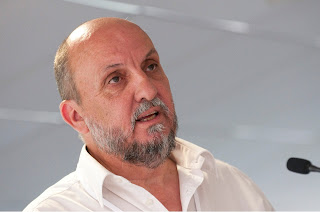fesTYval: Reimagining Regeneration, 18 June
Swansea Care & Repair, 13C Valley Way, Alberto Road, Swansea, SA6 8QP
9am – 5pm
#fesTYval The first of its kind in Wales! I am very pleased to say that we have had unprecedented interest in our new and exciting housing-led regeneration event, 'fesTYval'. From the local health board to the police, Communities First, social enterprises, local authorities and of course housing association staff and tenants, it really will be a mix of delegates who will all be there to find out more, be inspired by, celebrate and challenge the social housing sector's role in regenerating communities.
On 18th June we will transform this warehouse into a visually stimulating, fun and engaging venue:
The event stems from Community Housing Cymru and CREW Regeneration Wales’ Housing-led Regeneration Network which runs on a quarterly basis and is chaired by Steve Cranston, Head of Community Investment at United Welsh. Housing-led Regeneration is a rather creative element of the work of housing associations, and we felt that a standard corporate event would not fit with the agenda and audience.
As many of you are aware, the social housing sector is increasingly involved in regenerating communities through various initiatives. To give you a snapshot of the regeneration work taking place across Wales, you can take a look at our fesTYval Pinterest page:
http://gb.pinterest.com/chcgroup/festyval-reimagining-regeneration/ The sector and tenants rarely have a chance to reflect on the work taking place and to identify new pursuits. fesTYval will provide this opportunity.
In true UnConference format, fesTYval will run a loose ‘line-up’ with delegates given the choice to attend fringe events, master classes, and headline sessions throughout the day.
The 'Big Top' will host the headline speakers throughout the day, keeping us inspired and focused. The three fringe sessions will provide attendees with the opportunity to hear from showcased RSL examples and seek advice and support from colleagues on these areas of work. The measuring and reporting session will highlight the various tools and software available to the sector to capture and monitor what you are doing well. The Masterclass sessions will provide a free learning opportunity for both colleagues and tenants, giving you the tools to put your new ideas into action. Finally, Regen Street will allow you to take stock, grab a cuppa or an ice cream, and mingle with colleagues over the Washing Line or in the Cosy Caravan. The street will be lined with interactive stalls and stands from our partners, RSLs, local businesses and social enterprises for your perusal throughout the day.
Thanks to our partners including Building Enterprise, CREW and Bangor University, fesTYval will run at the low cost of only £20 per delegate. If you would like to book your place, please visit
CHC's website. A warning… tickets are running low!
You can join the conversation on Twitter leading up to the event and on the day using the #fesTYval hashtag. We look forward to seeing you there!
Hayley MacNamara
Regeneration Officer





